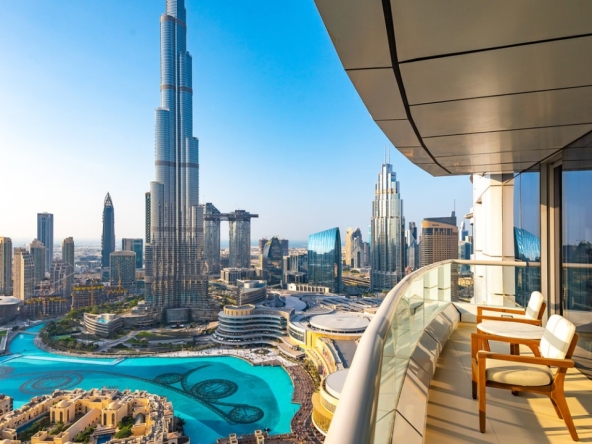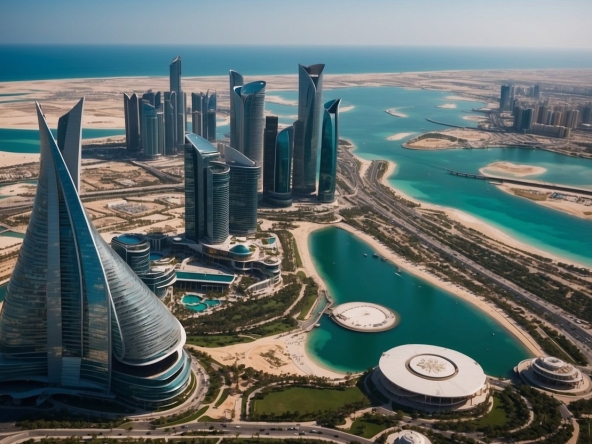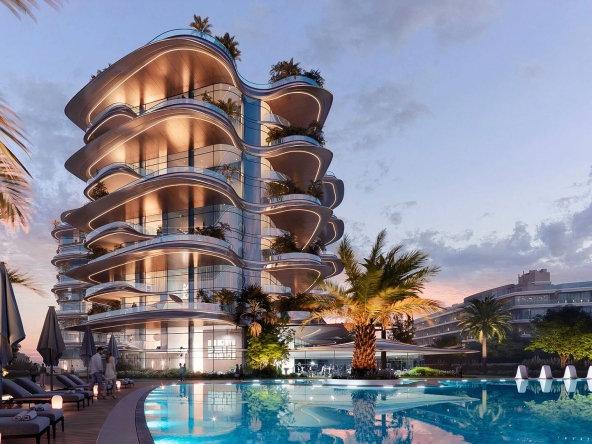Anyone looking to buy property in Dubai will find this market to be a striking choice. Dubai’s strong economy and lenient tax laws make it one of top investment choices.
But many investors are often interested in seeing if the Abu Dhabi real estate market is also worthwhile. Abu Dhabi has also been growing in prominence as the city’s economy has become increasingly diverse. The manufacturing, construction, and agriculture industries within the city have been growing, helping make Abu Dhabi more viable for investments and living.
Anyone who wants to buy property in the UAE should review what makes the Dubai and Abu Dhabi real estate markets different. The two cities are inviting investment options, but it’s necessary to see how they are distinct.
Property Supplies
Investors will find more choices for property investments than ever in these cities. But Dubai has a more substantial amount of properties for people to find today.
Dubai has more than 740,000 available units as of 2023. Much of the increase comes from new apartments, but there are some villas appearing in many areas.
The property supply in Abu Dhabi is much lower at about 250,000 units in 2023. The number has been slowly rising in the past few years, with an 8 percent increase over the past five years. The increase also comes primarily from apartments.
The construction industry in the UAE is expected to rise by nearly 7 percent in value in 2023. This potential increase suggests there will be even more properties available in both cities. But while both spots will have more options, Dubai will have more choices than Abu Dhabi.
Rates of Increase
The potential for investors to see profits in real estate is greater in Dubai than in Abu Dhabi. While the average cost per square meter for a flat or villa in Dubai is more substantial than in Abu Dhabi, the rate increase in Dubai is higher.
From 2021 to 2022, the value of an average flat in Dubai rose by nearly 10 percent to $3,229 per square meter. The total rose in Abu Dhabi by 1.6 percent to $2,969 per square meter, putting the city closer to what people spend in Dubai.
Some areas of Abu Dhabi have higher return values. The Al Reef apartments and Hydra Village villas have rates around 7 percent, for instance. But Dubai also sees similar increases, with the MBR City and Jumeirah Golf Estates regions having some of the highest increases.
Tax Considerations
Taxes for property tenants will vary by city. Residential renters in Dubai will pay a 5 percent annual rental tax, while commercial renters will have a 10 percent tax. Renters in Abu Dhabi who are UAE citizens aren’t charged rental taxes, but expats will pay 3 percent.
Dubai has a 4 percent transfer tax charged for the transfer of property, while the tax in Abu Dhabi is 2 percent.
Regardless of the city in the UAE, an individual won’t pay any income taxes, and the corporate income tax is 9 percent, which is already one of the world’s lowest rates. The total is significantly lower than the 20 percent taxes in Jordan, Russia, and the United States, or even at least 25 percent for people in Canada or France who attain enough profits each year. The VAT rate is also 5 percent, which is less than the rates of 15 percent or higher in many other active countries.
Residency Permits
People outside the UAE can obtain a residence permit to buy property in Dubai or Abu Dhabi. It is easy for many outside residents to obtain permits, especially for those in countries that have undergone international sanctions like Russia. The General Directorates of Residency and Foreigners Affairs in the two cities have different requirements.
In Dubai, an investor must obtain a residence visa for three years if buying real estate of at least $205,000, or a ten-year visa for properties of $545,000 or greater. In Abu Dhabi, the city only offers the ten-year visa for real estate $545,000 or higher. In short, investors can choose to spend less on Dubai real estate if they wish, but they have to pay more for doing so in Abu Dhabi.
Pricing Potentials
Although Dubai is more populated than Abu Dhabi and has more real estate options, the potential for real estate in Dubai to be cheaper than in Abu Dhabi is high. Dubai has an income of about $44,000 per capita, while the number in Abu Dhabi is $130,000.
Abu Dhabi also has a gross domestic product that is twice the size of what Dubai holds. Whereas Dubai’s GDP is $105 billion, the GDP of Abu Dhabi is $249 billion. The prominence and vast influence of the oil industry in Abu Dhabi have helped make this city one of the world’s most valuable. Oil makes up a third of Abu Dhabi’s economy, while it only totals about one percent of what Dubai produces.
The population rise in both cities is expected to remain strong, so there is a potential for property values to keep rising even as more people move in. Dubai’s population is rising by about 1.46 percent per year and is expected to reach the 3.5 million mark in 2035. Meanwhile, Abu Dhabi’s population is growing at 1.76 percent per year, but that total won’t reach 1.8 million until 2033 if current projections hold.
What Can We Conclude?
The details are clear that it’s more appealing to buy property in Dubai than in Abu Dhabi. Although both cities are attractive markets that offer many appealing opportunities while including affordable tax situations, the potential for growth in Dubai is much higher than in Abu Dhabi. The ability of investors to get visas in Dubai is also easier for many to manage.
The choices for investing in Dubai property are becoming increasingly diverse as well. Investors can find many options today, including off-plan penthouses, villas, and apartments.


